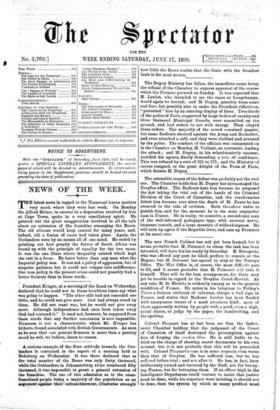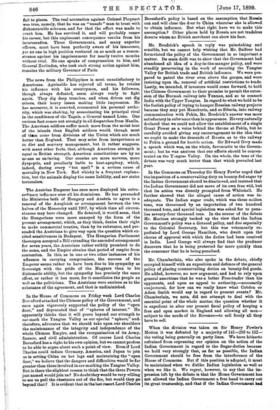Colonel Picquart has at last been set free, the Indict.
ment Chamber holding that the judgment of the Court of Caseation of itself destroyed the presumption against him of forging the cordon bleu. He is still liable to be tried on the charge of showing secret documents to his own counsel, but it is not probable that this will be proceeded with. Colonel Picquart's case is in some respects even worse than that of Dreyfus. He has suffered less, but he has snffsred before trial; and not after it. He has, in fact, been deliberately ruined and tortured by the Staff, not for betray- ing France, but for betraying them. If an officer high in the Intelligence Department could venture to insist that justice must be done, while his superiors were insisting it should not be done, then the system by which so many profited must fall to pieces. The real accusation against Colonel Picquart was true, namely, that he was an "unsafe" man to trust with dishonourable schemes, and for that the effort was made to crush him. He has survived it, and will probably renew his career, bat this unpleasant consequence results from his incarceration. Three Governments, and many superior officers, must have been perfectly aware of his innocence, yet no one in high position ventured on so much as a remon- strance against his imprisonment for nearly twelve months without trial. No one speaks of compensation to him, and General Zurlinden, who took such strong action against him, remains the military Governor of Paris.







































 Previous page
Previous page